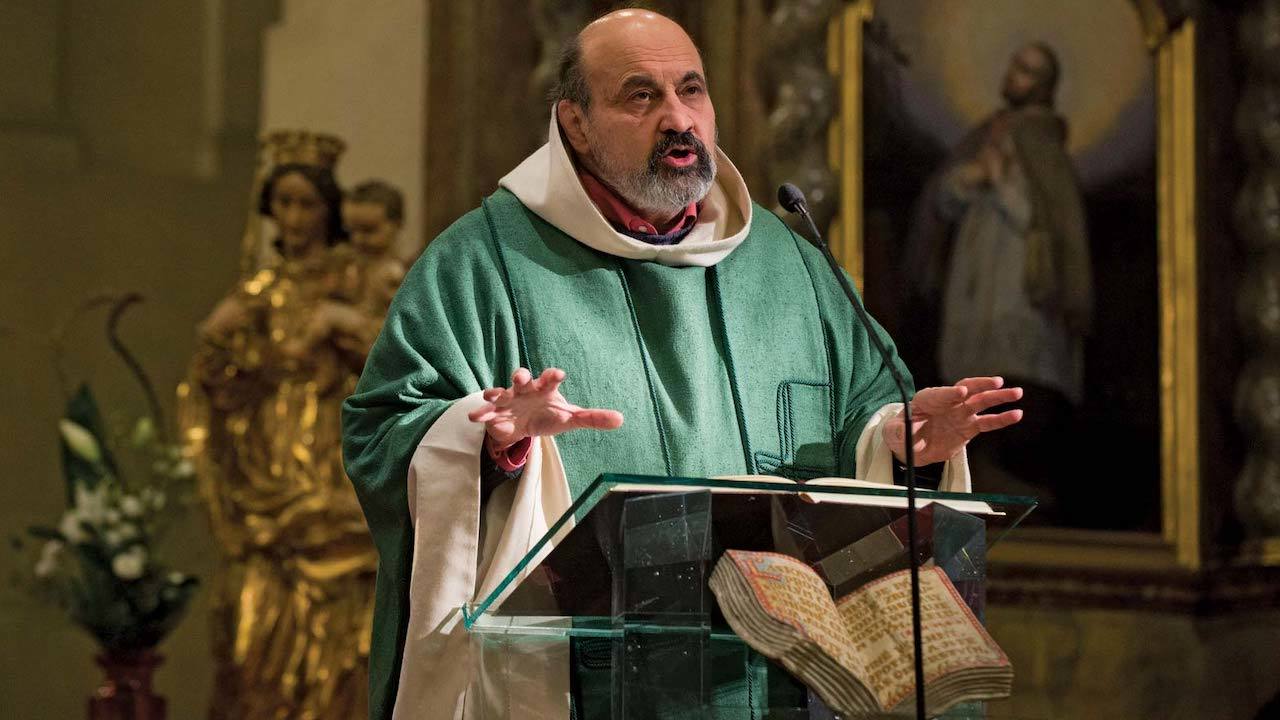Thomás Halík and the Violence of Modernity
by Erin Doom
Monday of the Holy Spirit (East)
Anno Domini 2020, June 8

The calm voice at the helm says, “Make it so…” and with it, the mantra of modernity is invoked. The philosophy that governs our culture is rooted in violence, the ability to make things happen and to control the outcome. It is a deeply factual belief. We can indeed make things happen, and, in a limited way, control their outcome. But we soon discover (and have proven it time and again) that our ability to control is quite limited.
The ceaseless re-invention of the better world rarely takes stock of its own actions. That large amounts of any present ruination that are the result of the last push for progress is ignored. It is treated as nothing more than another set of problems to be fixed. As the fixes add up, a toxic culture begins to emerge: food that cannot be eaten; air that cannot be breathed; relationships that cannot be endured; safety that cannot be maintained, etc. As the toxicity rises, so the demand for ever more action and change grows, and, with it, the increase in violence (of all types). The amount of our human existence that now requires rather constant technological intervention is staggering.
that which constitutes “better” is, or can be, a shifting definition. In Soviet Russia it was one thing, in Nazi Germany another, in Consumer-Capitalist societies yet another still. Indeed, that which is “better” is often the subject of the political sphere. But there is no inherent content to the “better,” nor any inherent limits on the measures taken to achieve it. The pursuit of the better (“progress”) becomes its own morality.
This picture of the modern world can, in the modern Christian mind, provoke an immediate response of wondering what can be done to change it. The difficult answer is to quit living as though modernity were true. Quit validating modernity’s questions. Do not ask, “How can we fix the world?” Instead, ask, “How should Christians live?” and give the outcome of history back to God.
We have been taught that Christ is the Firstborn of God, and we have suggested above that He is the logos of whom every race of men and women were partakers. And they who lived with the logos are Christians, even though they have been thought atheists; as, among the Greeks, Socrates, and Heraclitus, and people like them; and among the barbarians, Abraham, and Ananias, and Asarias, and Misael, and Elias, and many others whose actions and names we now decline to recount, because we know it would be tedious. So that even they who lived before Christ, and lived without logos, were wicked and hostile to Christ, and slew those who lived with the logos. But for that reason He, through the power of logos and according to the will of God the Father and Lord of all, was born a virgin as a man, and was named Jesus, and was crucified, and died, and rose again, and ascended into heaven, an intelligent person will be able to comprehend from what has been already so largely said.
Contribute to Cultural Renewal by Sharing on Your Preferred Platform
In an isolating secularized culture where the Church's voice is muffled through her many divisions, Christians need all the help they can get to strengthen their faith in God and love toward their neighbor. Eighth Day Institute offers hope to all Christians through our adherence to the Nicene faith, our ecumenical dialogues of love and truth, and our many events and publications to strengthen faith, grow in wisdom, and foster Christian friendships of love. Will you join us in our efforts to renew soul & city? Donate today and join the community of Eighth Day Members who are working together to renew culture through faith & learning.









